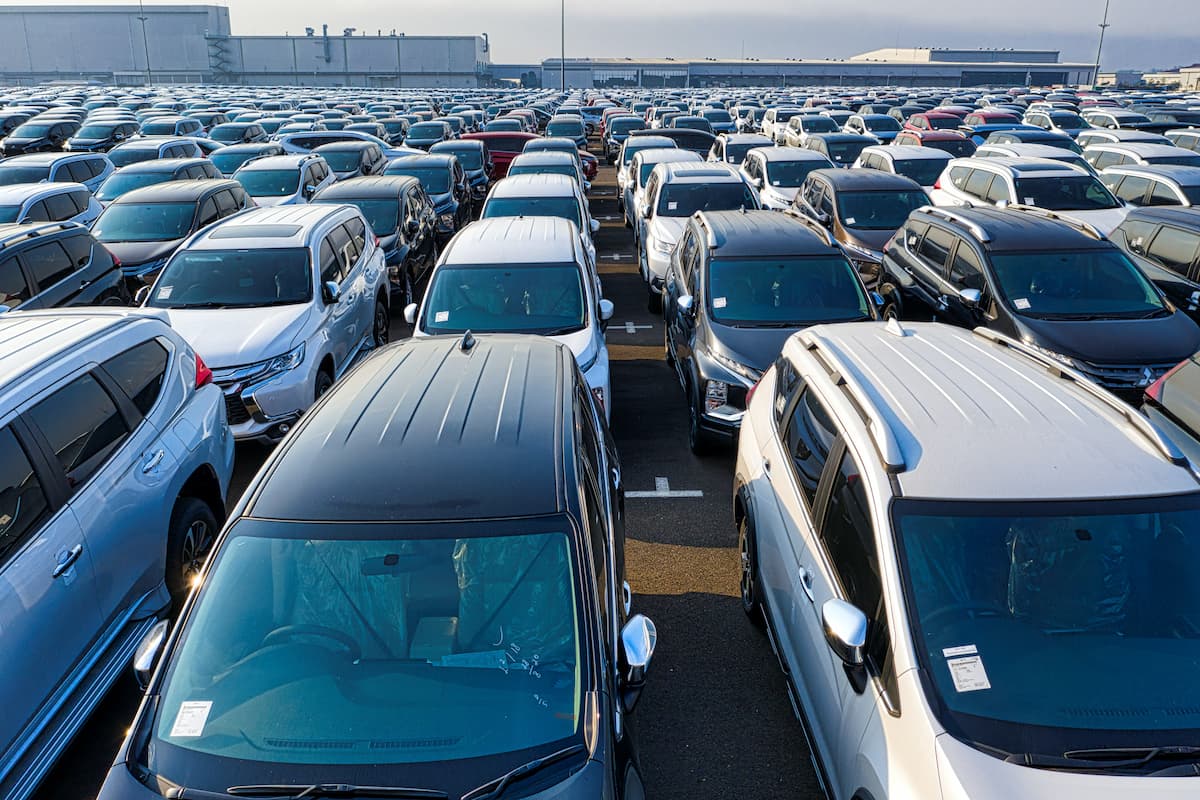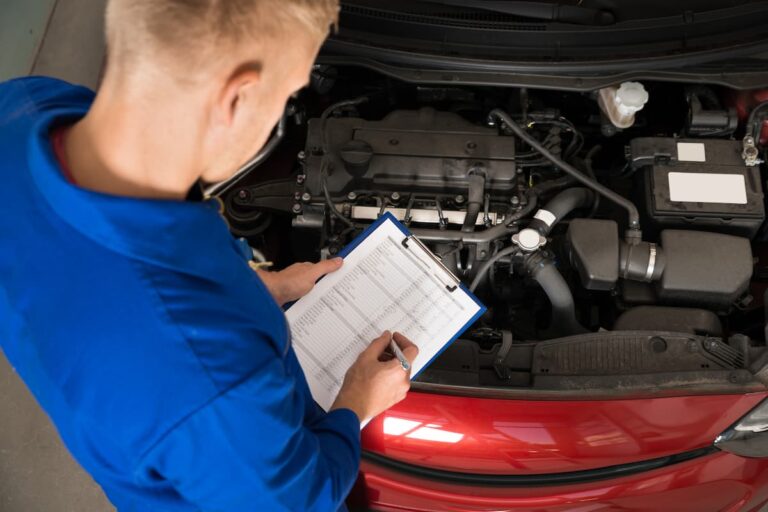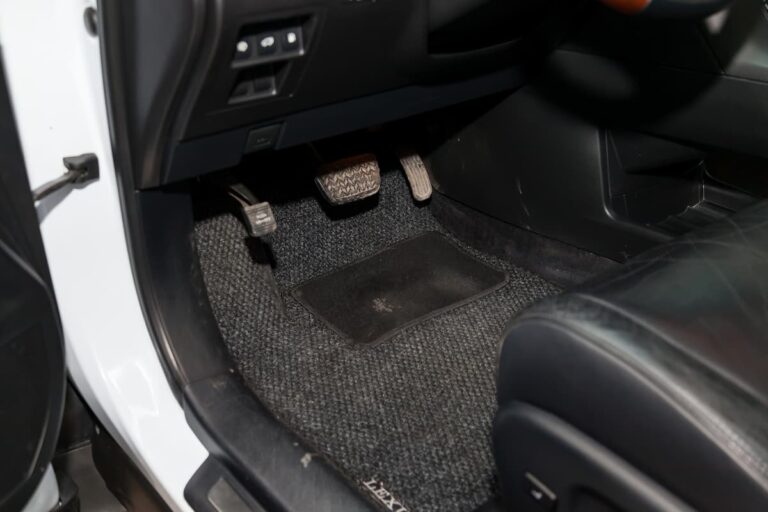Why Can’t Car Manufacturers Sell Directly to Consumers?
Have you ever wondered why you have to go to a dealership to buy a car?
Why not head directly to the manufacturer instead of going through a middleman?
Car manufacturers can not sell directly to consumers because most states have laws that prohibit it. The idea behind these laws is that dealerships increase competition, are better at satisfying the customer, and benefit local communities. Meanwhile, some people believe these statutes are unfair to the consumer.
In this article, I will talk about the laws surrounding car manufacturers selling to consumers and why these regulations exist.
I will also discuss the pros and cons of this model as well as whether franchise laws are constitutional.
Why Can’t Auto Manufacturers Sell Directly to Consumers?

Car manufacturers can not sell directly to consumers because the law prohibits it.
Virtually every US state and territory has regulations forcing manufacturers to sell their cars to consumers via a dealership.
Why Are There Laws About Car Manufacturers Selling to Consumers?
There are several reasons why laws exist to keep manufacturers from selling directly to consumers, and I will describe them in the sections below.
Selling Cars Through Dealerships Increases Competition
One of the largest reasons that laws prohibiting car manufacturers from selling directly to customers, called franchise laws, continue to exist has to do with competition.
Basically, when multiple independent dealerships sell the same brand of cars, they have to compete with each other.
Because if two dealerships in the same area have different prices on the same car, people will buy the cheaper option.
Thus, dealerships want to keep their prices low so that consumers buy from them.
But, if the manufacturer is the only one selling their cars, there would be no competition between stores because there is no use in the same company competing with themselves.
Dealerships Have More Incentive to Satisfy the Customer
What kind of car do you drive?
Most likely, it’s one of the big car brands, such as Ford, Toyota, or BMW.
Now, think about the dealership where you bought your vehicle.
There’s a significant chance that the dealership you got your car from does not have nearly the same brand recognition as your vehicle’s manufacturer.
And it is this disparity that makes it a lot more likely that you’ll get a more satisfying experience buying from a dealership than a manufacturer.
You see, it all comes back to competition.
For example, everyone knows that Chevrolet makes quality cars, and there are some people who only buy Chevys.
Therefore, if Chevrolet sold its own cars, these people would just go straight to the Chevy store and buy whatever model they wanted.
But, when it comes to dealerships, there isn’t anywhere near as much brand loyalty.
Thus, most people have no problem purchasing from whichever Chevy dealership will give them the most satisfying customer experience.
So, regarding things like warranties, repairs, and haggling, dealerships have a much larger incentive to give you what you want compared to the big automotive manufacturers.
Therefore, a major argument for franchise laws is that they exist to protect the customer.
Dealerships Benefit Local Communities
Yet another reason that dealerships and car franchise laws have stuck around is because of the ways that dealerships benefit local communities.
For one, dealerships are typically local businesses that must pay state and local taxes, which go back into the community.
Secondly, dealerships are important employers in the United States, as more than one million people work in them.
These jobs are also typically high paying, provide their employees with benefits, and give them an opportunity for upward mobility.
Thus, many states and their citizens do not want to trade local dealerships for international car manufacturers.
Are Franchise Laws Constitutional?

When people hear about franchise laws, they often wonder how these regulations aren’t against the constitution since they seem to limit free trade.
However, several local courts, as well as the US Supreme Court, have ruled time and time again that franchise laws are not against the constitution.
But why is it legal for states to regulate cars so heavily when they can’t do so with other industries?
Well, the answer has to do with the inherent danger in cars and the fact that, oftentimes, buying a vehicle requires a lot of paperwork with the state.
For example, you must have insurance before driving a car off the lot, and the government regulates auto insurance.
Additionally, the people who repair cars in dealerships usually must be licensed by the state they work in because of the possible dangers and liability of their vocation.
Furthermore, the government is also part of the financing process of buying a car.
Therefore, as you can see, the government needs to be able to regulate the buying and selling of vehicles, which allows them quite a bit of say over the auto industry.
Do Car Manufacturers Benefit From Dealerships?
It may seem like car manufacturers would be hurt by not being able to sell their own goods directly to the consumer.
However, overall, car manufacturers in the United States prefer selling their cars through dealerships.
In fact, it was the car companies’ idea in the first place to sell their vehicles through a third party.
Primarily, car companies like the idea of dealerships because it keeps them from having to build their own stores across the country.
Additionally, by using dealerships, manufacturers do not have to worry about training staff and pouring money into sales, financing, and all of the other things that go into selling to consumers.
This model allows auto companies to focus more time and money on creating the best possible vehicles.
Why Can Tesla Sell Directly to Customers?

Tesla has made headlines in the past few years because it wants to sell its cars directly to US consumers.
And some states have allowed Tesla to do so.
However, many completely ban Tesla from selling vehicles within their borders.
So, although Tesla has won some court battles that allow them to sell directly to the consumer, they still have a long way to go if they want to get around the laws in every state.
Is it Better for Car Manufacturers to Sell Directly to Consumers?
The topic of whether it’s better for car manufacturers to sell directly to consumers is a hot-button issue.
Some people believe that it is the right of the manufacturer to sell its cars directly to consumers and that consumers have the right to buy from manufacturers.
But, other people don’t think it’s ethical to get rid of car dealerships, which are undeniably important to many local economies, in favor of powerful international corporations.
Additionally, those who would like to see the end of car dealerships argue that vehicles would be cheaper if manufacturers sold directly to customers.
The idea is that cutting out the dealership will get rid of resale markup.
Meanwhile, others believe that car prices overall would rise without dealerships because there wouldn’t be enough competition if manufacturers were the only ones selling their cars.
Additionally, many people don’t want to get rid of their ability to shop around at different dealerships and haggle over the price of a new car.
Conclusion
All in all, car manufacturers can not sell directly to consumers because state laws don’t allow it.
But, because of legal battles over these laws, some wonder if states will soon change their minds about these regulations.
Table of Contents
- Why Can’t Auto Manufacturers Sell Directly to Consumers?
- Why Are There Laws About Car Manufacturers Selling to Consumers?
- Are Franchise Laws Constitutional?
- Do Car Manufacturers Benefit From Dealerships?
- Why Can Tesla Sell Directly to Customers?
- Is it Better for Car Manufacturers to Sell Directly to Consumers?
- Conclusion






